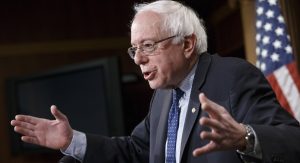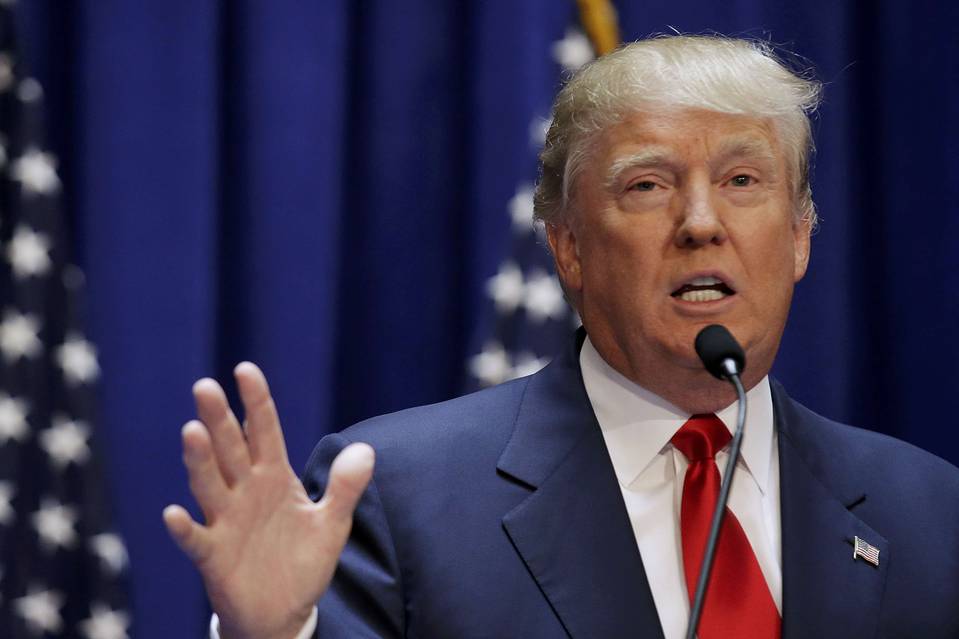Along a state highway in rural Wilkes County, Georgia, a hand-made sign complete with balloons is seen posted in the yard of a modest home. The sign reads, “Trump Tells The Truth, Trump 2016.”
Nearly 32 percent of Republicans share this sentiment, according to an August 2015 Reuters/Ipsos poll, a statistic that has done nothing but increase since Donald Trump officially announced his campaign for presidency in June. Trump’s nearest, though distant, competitors are former Florida governor Jeb Bush, who in the same Reuters/Ipsos poll came in second with 16 percent support, and Dr. Ben Carson, who came in third with 8 percent. When pitted against only these two highest competitors, however, Trump amassed 44 percent of the vote, compared to 29 percent for Bush and 25 for Carson.
Thinking stereotypically, the South is likely the last place one would expect to find such widespread political support for a multi-billionaire real estate tycoon from New York; however, Trump is not a typical candidate, and the 2016 Republican candidate field is not a typical group of candidates. In addition to Trump, an ophthalmologist, a former CEO, and a brain surgeon are among the professionally eclectic group of presidential hopefuls from the GOP.
Despite his vast amount of media coverage, Trump is not the only candidate for president who is new to the political arena. Carson, mentioned previously as a highly favored candidate among Republicans, is also making his first foray into politics with his 2016 presidential bid. Before stepping into the political spotlight, Carson’s claim to fame was being the first person to successfully separate Siamese twins conjoined at the head. Similarly, Carly Fiorina, the lone female in the 2016 GOP race, is making her first bid at public office after ascending to CEO of Hewlett-Packard and being a Verizon executive.
Even some of the names voters recognize primarily as politicians are new to the political scene. Dr. Rand Paul, a senator from Kentucky, has only been in politics since 2007, when he first won his senate seat. His previous profession was ophthalmology. In 2012, when Republican presidential candidate Mitt Romney accepted the GOP’s nomination for president, the then-65-year-old Massachusetts native had only held political office for four years, per his gubernatorial term beginning in 2003.
Even the 2012 election showed stirrings of this trend toward non-career politicians. Herman Cain, a business executive of Burger King and CEO of Godfather’s Pizza for ten years, never actually held elected political office of any kind, similar to Fiorina. He led the GOP poll around this time of year in 2011, before accusations of sexual assault toppled Cain’s campaign.
While remarkably less numerous, the Democratic candidate field is not without its own unique standout from the typical big name party leaders: 73-year-old senator Bernie Sanders.
Sanders is not a registered Democrat; instead he has an (I) for Independent next to his name. Accordingly, his views do not completely line up with those of a typical Democrat, In fact, his views have both been praised and criticized for being socialist in nature: part of his plan for America is steering its social programs toward a Scandinavian model, such as a universal right to health care as well as free undergraduate and graduate school opportunities.

He is seen as fresh and his views attractive, especially to college-age voters, and a key selling point for Sanders’ supporters is his authenticity and politics of conviction. He has almost never “flip-flopped” on his stances throughout his time in political office, a claim Hillary Clinton, a Democratic big-wig, cannot make.
However, Sanders has been in politics for over 30 years, beginning with an eight-year stint as mayor of Burlington, Vermont, his home state. Therefore, instead of non-career politicians, the growing support for a candidate like Sanders illustrates another phenomenon in the American political landscape today—voters are beginning to turn their attention more toward honest, consistent, fiery political leaders whose views are completely their own and not part of exhausted party dogma.
Similarly, Dr. Paul is a self-proclaimed “different kind of Republican.” Described by many as a libertarian, perhaps fittingly in the spirit of his father, Paul sets himself apart from the other typical GOP candidates with his libertarian-leaning views on the decriminalization of marijuana, non-interventionist views on foreign policy, and a fierce opposition to unwarranted personal data collection by the NSA.
This rising support for candidates who are not career politicians nor giants of their political party also represents a growing distrust of political leaders who, in the eyes of the voters, are too caught up in the stereotypical game of broken political promises and corrupt backroom scandals.
For example, Hillary Clinton, much to the chagrin of Bernie Sanders supporters, is widely being accepted as the eventual Democratic nominee—both by pundits and voters alike. However, Sanders supporters are not fazed, as their nominee is rapidly gaining ground. In an August 2015 CNN poll, Sanders measured an increase in voter support by a whopping ten percent in just one month, showing that 29 percent of Democratic voters are now in favor of Sanders for president. Clinton lost nine percent in the same time period, bringing her support to 47 percent.
Across the aisle, big name politicians like Bush, Marco Rubio, and Scott Walker are experiencing similar losses in support to Trump.
Politico claims that Clinton’s plummet stems from the “drip, drip, drip” of Clinton’s email scandal, and as the election nears, her statements regarding the 2012 fatal ambush of the U.S. consulate in Benghazi are being scrutinized further.
Clinton’s campaign isn’t the only one surrounded by controversy, however. Trump has expressed views on U.S. immigration policy that have caused backlash and even elicited accusations of racism. Trump also marginalized Arizona Senator John McCain’s military service and time as a prisoner of war in Vietnam. Normally, one would likely assume that these two highly controversial acts would lose him considerable support in the polls. He alienated both progressives with liberal stances on immigration, as well as war veterans and their families, which compose large portions of both political parties. However, because he is not a politician, Trump is seen as having the freedom to speak his mind, needing not to worry about constituent backlash; this boldness is attractive to voters tired of the same old political motions in Washington.
The effect on voters of Trump’s outspoken campaign style is most directly displayed in a national poll showing him trailing Clinton by a mere six percent—a 2016 presidential matchup that will occur if current poll statistics continue.
November 2016 is over a year away, and While opinions are sure to differ over whether or not a real estate tycoon, neurosurgeon, or somewhat of a niche Independent candidate are the best choices to lead such a diverse nation as the United States, it is clearly evident that Americans are beginning to steer away from those who have made their careers entirely about making a big name for themselves in politics.
Photo Credit: Wall Street Journal
